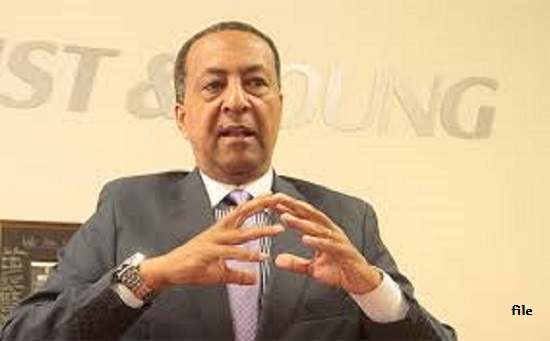Privatizing Telecom Industry to Give Opportunity for Consumers, Says Economist - ENA English
Privatizing Telecom Industry to Give Opportunity for Consumers, Says Economist

June 10 /2019 Partially privatizing Ethiopia’s telecom industry will give consumers lots of opportunities as there will be competition and innovation among firms, the Economist Zemedeneh Negatu said.
In an exclusive interview with ENA, Global Chairman of Fairfax Africa Fund Zemedeneh said turbocharging the reform in the telecom sector will lure new private telecom operators in the market, and the 17th Innovation Africa Digital (IAD) Summit is a good platform.
“Ethio-telecom will be privatized and at the same time there will be new operators in the market. That means lots of opportunities to the consumer the user as there will be a lot of competition and more innovations,” he elaborated.
It is to be recalled that Ethiopia had opened up some of its public enterprises, including Ethio-telecom, for full and partial privatization. Accordingly, Ethio-telecom will be partially privatized.
Zemedeneh stated that he expects a lot to come out of the 17th Innovation Africa Digital Summit in terms of reform not only in the telecom sector but also in technology.
Appreciating Kenya’s Silicon Savannah, Zemedeneh pointed out that “there is no reason why we cannot catch up and go ahead of them because we have a lot of young talented people coming up with innovative things in Ethiopia.”
The economist highlighted that the Ethiopian telecom industry deserves credit for its big achievements about investing in fiber optics infrastructure and raising the number of mobile subscribers from almost nothing to 42 million active subscribers.
However, the economist stressed:“What we now are saying is let us leverage and let us monetize all these investments, make it innovative so that the rest of the economy can back strap or use that as a platform to go to the next level, including manufacturing and agriculture. So I am very excited.”
According to him, supportive regulation, huge investment in human capital especially STEM, and utilizing the country’s youth which is over 65 percent of the total population are among the critical areas the government needs to focus.
African Center for Statistics Director at ECA, Oliver Chinganya said many African countries face a number of challenges in ICT maturity, including information technology infrastructure, inconsistent electricity delivery, great disparities in accessing Internet and mobile services, and lack of appropriate legislation and excessive data cost.
“Consequently, in an era marked by intense competition, globalization, and increased importance of knowledge as an economic driver, it is important for organizations and governments to understand the dynamic and significant role that ICT plays in enhancing competitiveness in the context of AfCFTA implementation,” Chinganya noted.
On sub-regional level, South Africa leads Internet penetration by 51 percent, followed by North 49 percent, Western 39 and lastly Eastern and Central Africa 27 and 12 percent respectively.